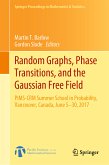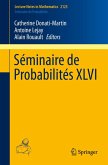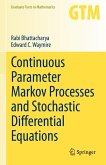A "Markovian" approach is adopted to explore these random discrete surfaces, which is then related to the analogous one-dimensional random walk processes. This technique, known as "peeling exploration" in the literature, can be seen as a generalization of the well-known coding processes for random trees (e.g. breadth first or depth first search). It is revealed that different types of Markovian explorations can yield different types of information about a surface.
Based on an École d'Été de Probabilités de Saint-Flour course delivered by the author in 2019, the book is aimed at PhDstudents and researchers interested in graph theory, combinatorial probability and geometry. Featuring open problems and a wealth of interesting figures, it is the first book to be published on the theory of random planar maps.
Dieser Download kann aus rechtlichen Gründen nur mit Rechnungsadresse in A, B, BG, CY, CZ, D, DK, EW, E, FIN, F, GR, HR, H, IRL, I, LT, L, LR, M, NL, PL, P, R, S, SLO, SK ausgeliefert werden.









